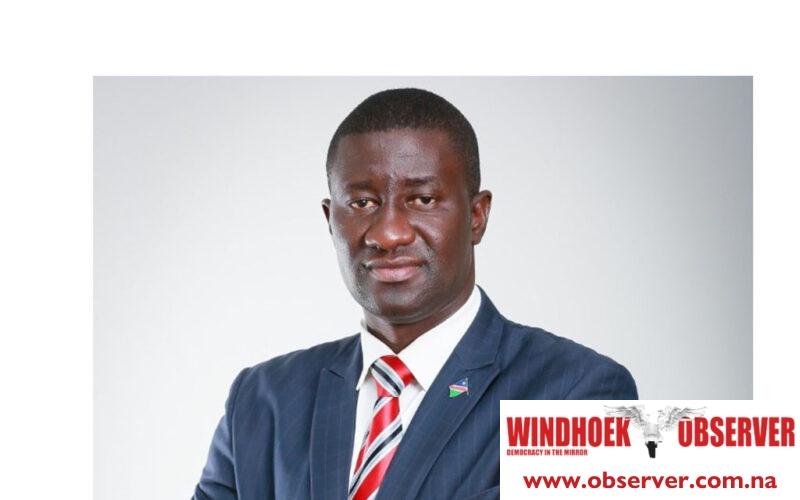Martin Endjala
Otjozondjupa regional governor, James Uerikua has expressed disappointment in the delays in road infrastructure due to the slow pace and lack of finance.
“How long do we have to wait for financing? That is the key issue. That’s why, in 2020, my office was briefed by the Roads Authority (RA) on the readiness of the detailed plan, but up to now, as we are talking, I have not seen that advertisement through which they would have advertised to say we are now starting the road construction as far as this road is concerned,” argued the governor.
He said this during an interview with the Windhoek Observer on Thursday, in which he argued that one bemoans the slow pace at which procurement services occur.
This comes after the RA announced that it is revising the regional master plans for roads in the Otjozondjupa, Omaheke, Kunene, and Erongo regions.
This is according to a public participation invitation notice seen by the Windhoek Observer this week, which indicated that the previous master plans were prepared in 2012.
“With socio-economic changes over time, it is necessary to reassess the regional road network required to safety present and future needs,” reads the notice.
The assessments are said to comply with the Roads Authority Act and related acts to assess the situation and find viable solutions to improve the road networks.
Interested and affected parties are encouraged to register to provide input into the process of reviewing the road master plans.
According to the notice, regional public participation meetings are scheduled for 19 August in Erongo, 20 August in Otjozondjupa, 22 August in Kunene, and 28 August in the Omaheke region.
According to Uerikua, the review of the road master plan is an important undertaking because it seeks to upgrade the region’s road infrastructure and thereby bring development to the region.
“As you might be aware, the RA has already done consultations previously, whereby they ended up releasing their strategic and action plan. We have contributed and have prioritised the roads in the region, and as governor, I went as far ahead to put up what we call the roads board,” he said.
He said the road board is divided into two parts for the region’s eastern and southern parts.
Uerikua stated that RA’s revision of the master plans comes at an opportune time, as they are trying to reshape the region.
The governor said that infrastructure enables social and economic development and advancement.
As a result, they have already identified upgrading the Grootfotein-Tsumkwe road from its current gravel to a high-low-volume standard all the way to Gam as a priority.
“Roads Authority have done detailed designs and have already partitioned the road in terms of sections of how they will be rolling it out. Environmental assessment impact was also made, among other things. What was left was just financial funds,” he disclosed.
He further said the road from Okahandja to Okanjetu is another economic road the region is looking to upgrade, stating that traffic heading to Grootfontein needs to be redirected to ensure that economic activities in the region are broadened and new growth is identified and supported.
He said there have been many calls to upgrade the Okakarara road, but this has already been done. However, he contended that upgrading all roads in the region from gravel to tiered roads was not feasible.
“What we are saying is that we can just make minor improvements. You cannot upgrade all the gravel roads to tiered roads while you have a very vast region. So there needs to be equality and fairness so that you cannot over-concentrate development in one area and then neglect the other areas,” he pointed out.
The governor said that most of the roads branching out to other places are 40-60 KM long, but due to the bad conditions, drivers, particularly farmers, are forced to drive for three hours with their heavy vehicles.
He said that the line ministry and RA have already announced it, and an upgrade is the only requirement. But this has not happened.
RA spokesperson Fillemon Hileni said the road master plan public consultation workshops are aimed at getting the public’s input into road planning.
“It is also a platform that we use to inform our stakeholders in the regions about road infrastructure development,” she said.
The regional roads master plan undergoes revision every five years, according to her.




